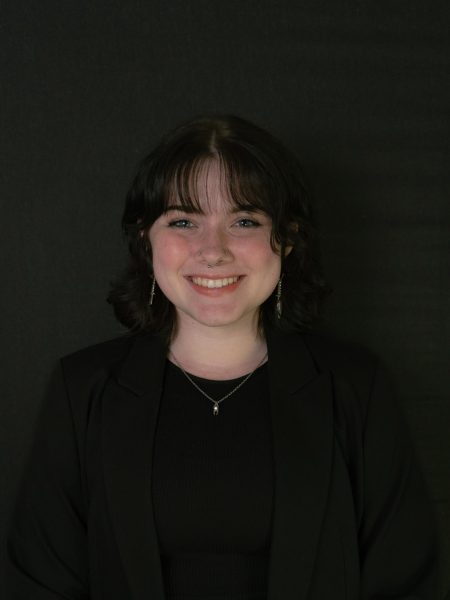In a proposed position statement presented to faculty senate, a UTSA professor contended that a lack of explicit administrative guidance on diversity, equity and inclusion compliance has created an atmosphere of “fear and ambiguity” within the university community.
Initially, 15 minutes were set aside in the March 20 faculty senate meeting agenda to discuss the position statement; however, the senate spent over 30 minutes going back and forth on the matter.
The statement calls upon university leadership to take immediate actions to clarify UTSA’s commitment to its Hispanic Thriving Institution status, uphold its founding purpose and mission and safeguard accreditation for programs requiring diversity, equity and inclusion competencies.
The position statement was introduced at a previous meeting by Edwin Barea, a professor in the College of Sciences and Program Director of Maximizing Access to Research Careers and Initiative for Maximizing Student Development. The first discussion of the statement had to be shelved for time.
Barea spoke on behalf of other senators and faculty who felt concerned and uncertain due to the absence of administrative guidance after state and federal efforts to remove DEI initiatives. He argued that programs across multiple departments are already being impacted and that his questions to administrators pertaining to the programs and grant funds have repeatedly gone unanswered.
“I brought some of these grants that paid for these students. Nobody has contacted me to ask me how your grants are being affected. One of my grants, I haven’t received the notice of award. It was due on February 1.
“So this is an example that if they’re talking with people, there’s- I don’t know who they’re talking with. I have around 60 students that are being affected by these changes.” Barea said.
Some of the points in the document call for university leadership to affirm its commitment to DEI in legally permissible areas including, but not limited to, academic instruction, scholarly research and student success programs.
After reading the document, Mihai Popa, an assistant professor in mathematics, responded.
“I don’t know how much you can expect from that,” Popa said. “We should choose our battles and our weapons. As long as it’s just for our administration, it’s fine. But using ‘diversity, equity and inclusion,’ imagine if this will go in the media. And imagine the backlash from the state and the federal [government].”
“This is not to the media or anything like that,” Barea responded. “This is to tell [the administrators], ‘Look, we need guidance from you.’”
Since the last faculty senate meeting, the position statement has undergone heavy revision due to typos. The senators were not made aware of the extent of the changes, and they were not sent the revised position statement ahead of the meeting.
“I’m a little surprised. I thought we were gonna, like, actually move that statement forward through conversation today, but we’ve changed the statement because they say it has typos in it,” Professor of Educational Psychology Michael Karcher stated.
“It’s not the typo. It’s the fact that I got feedback from all of my faculty and communicated it back on our last document. I felt confident in my ability to support that document, especially after your responsiveness in making minor changes. This is a complete redo. This is night and day, and I can’t do anything with this until I go back to my faculty.
“I feel like this is something we ought to talk about next meeting, not this one, unfortunately,” Karcher said.
Mary Dixson, a professor in the department of communication, added her concerns regarding the position statement being disputed only amongst the senators. According to Dixson, this meeting was held in-person for the senators to discuss the statement directly with Heather Shipley, Provost and Executive Vice President for Academic Affairs.
“It feels like we’re baiting and switching to then let her walk out the room, and now put this in front. This could have been read to her,” Dixson notes. “This was on the agenda, so no one can say they didn’t know that it was coming.”
Multiple senators shared their dissatisfaction with the wording of the statement coming across as vague and considered it to be a draft in need of revision. Dixson suggested the Academic Freedom, Evaluation and Merit Committee gather information and revise the draft.
“[Shipley] has the power to actually implement these things. She should have a say in what could be implemented. We should negotiate, not assert,” Communication Professor Kimberly Kline urged.
The discussion on the position statement came to a close when a motion by Dixson was accepted to refer the statement to the AFEM committee.
“They need to gather the information. They need to review it all and then research what’s going on, and then refer back to us what they think we need to do, whether it’s a statement of conversation with the administration. So it charges them to make decisions,” Dixson explained.
“The whole idea is it will be up to AFEM to decide what the best course of action is. But a statement is required to be voted on by 50% of the senate to be approved. So that’s why it would have to come back,” she stated.
After the meeting, Barea reflected on how the discussion of the position statement went. He was disappointed in the typos present in the document; however, he still considered the discussion to be a net positive.
“This is the farthest that we’ve gone in this meeting,” Barea said. “Every meeting — I mean, I’ve been in this for two years — it’s all about curriculum and programs and all that. But having this very difficult conversation, this is the first one.”
The next faculty senate meeting will be held online via Zoom on April 17, and the final meeting of the spring semester will be held in the John Peace Library Assembly Room on May 8.











